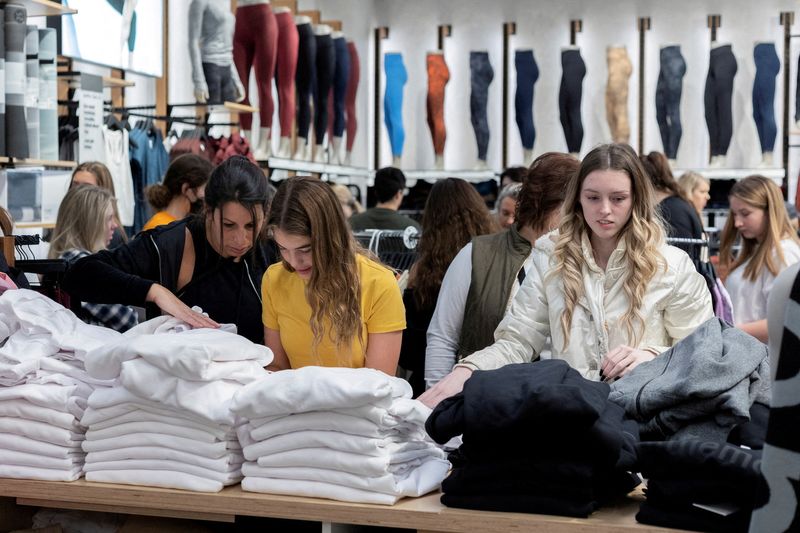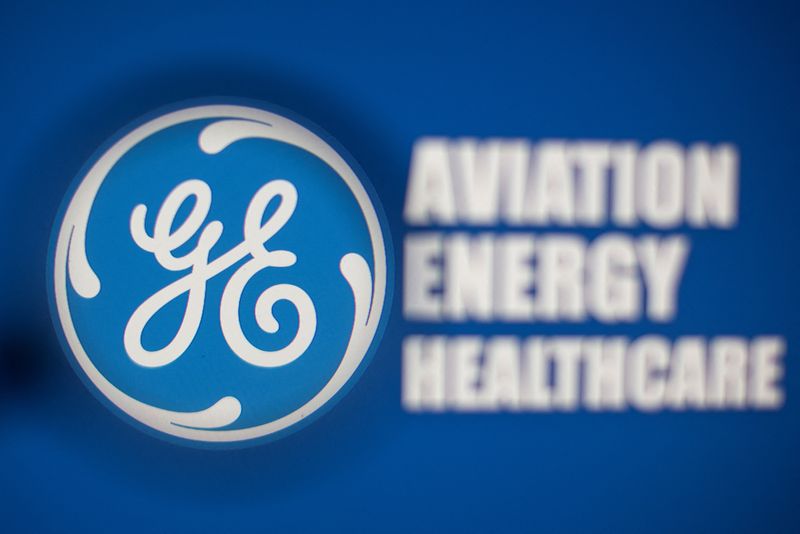
FILE PHOTO: U.S. consumer prices rose solidly in December, with the annual increase in inflation the largest in nearly four decades, Shoppers show up early for the Black Friday sales at the King of Prussia shopping mall in King of Prussia, Pennsylvania, U.S. November 26, 2021. REUTERS/Rachel Wisniewski/File Photo/File Photo
January 25, 2022
By Lucia Mutikani
WASHINGTON (Reuters) – U.S. consumer confidence ebbed slightly in January, with more consumers planning to purchase homes, automobiles and other big-ticket items even as they grew less optimistic about business and labor market conditions in the short term.
The survey from the Conference Board on Tuesday also showed consumers’ inflation expectations moderating for a second straight month, though still high. Their views of the labor market softened a bit, likely reflecting the disruptions on businesses caused by the winter wave of COVID-19, fueled by the Omicron variant.
“While consumer confidence dipped this month, consumers generally have faith in the strength of this recovery,” said Robert Frick, corporate economist with Navy Federal Credit Union in Vienna, Virginia.
The Conference Board said on Tuesday its consumer confidence index slipped to a reading of 113.8 this month from 115.2 in December. Economists polled by Reuters had forecast the index declining to 111.8. Despite the first decline in four months, the index is well above pandemic lows.
The survey places more emphasis on the labor market, which is tightening amid worker shortages.
The survey’s measure of current conditions rose, a sign that the economy entered 2022 on strong footing, but its gauge of expectations for growth in the short term eased in line with views that economic growth will slow down this quarter because of the disruptions caused by Omicron.
(Graphic: Consumer confidence, https://graphics.reuters.com/USA-STOCKS/egpbkjzjmvq/consconf.png)
The United States is reporting an average of 696,541 new coronavirus infections a day, according to a Reuters analysis of official data. Infections, however, appear to subsiding in some regions, including the hardest-hit New York.
“It is likely that the tight labor market is supporting the Conference Board data because the survey emphasizes the job market,” said Daniel Silver, an economist at JPMorgan in New York.
The Conference Board’s so-called labor market differential, derived from data on respondents’ views on whether jobs are plentiful or hard to get, fell to a still-high reading of 43.8 this month from 44.2 in December. This measure correlates to the unemployment rate from the Labor Department. There were 10.6 million job openings at the end of November.
INFLATION EXPECTATIONS EASE
Consumers’ inflation expectations over the next 12 months slipped to 6.8% from 6.9% last month. The retreat in inflation expectations from a 13-year high last November is likely to be welcomed by Federal Reserve officials who started a two-day policy meeting on Tuesday.
The U.S. central bank is expected to start raising interest rates in March to tame inflation. Despite high inflation, consumers expect to buy homes, cars and other big-ticket items over the next six months.
The share of consumers planning to buy a motor vehicle over the next six months was the largest in six months. Buying intentions for household appliances like television sets and refrigerators also rose, though plans to purchase washing machines and clothes dryers fell.
Consumers were more interested in buying a house over the next six months, with the share the largest in the current series. There was a break in the series in November 2010. With housing supply continuing to lag demand, that suggests home prices will likely remain elevated this year.
A second report on Tuesday showed the S&P CoreLogic Case-Shiller’s 20 metropolitan area home price index rose 18.3% on a year-on-year basis in November after accelerating 18.5% in October.
(Graphic: Case Shiller, https://graphics.reuters.com/USA-STOCKS/lgvdwjrjkpo/caseshiller.png)
Strong house price inflation was mirrored by a third report from the Federal Housing Finance Agency showing house prices increased 17.5% in the 12 months through November after rising 17.4% in October.
(Reporting by Lucia Mutikani; Editing by Chizu Nomiyama and Andrea Ricci)

